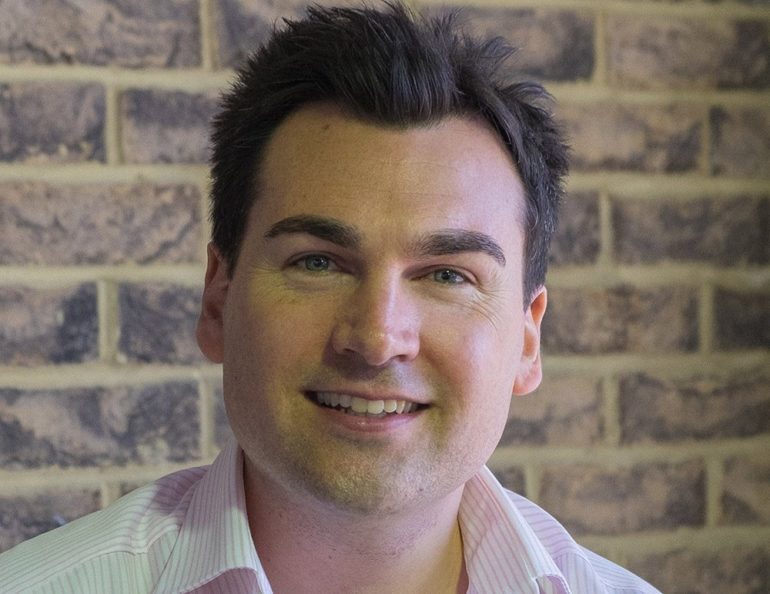What do you currently do?
I am Chief Operating Officer at FIXR, an online events platform and marketplace for university students that I co-founded in 2013 with friends and former colleagues Ed Glover, Hugh Huddleston, and Dom Marmont.
FIXR is taking a fresh approach to ticketing, built to address the specific demands of organising events for university students. We’re making it easy for everyone from the university gin society to student club night managers, ball committees to badminton clubs to manage event ticket sales, collect subscriptions, and sell merchandise. Our network of more than 50 student brand ambassadors, combined with the insights we gain from how users interact with our hyper-local listings, gives us an unparalleled insight into the unique student event economy. We currently operate in 20 universities across the UK, with ambitions for nationwide coverage by the end of 2018. Over time, we aim to become the ‘go to’ platform for brands wanting to engage with the student audience, whether for target advertising, influencer marketing, or even graduate recruitment.
In my role as COO, I lead the company’s day-to-day operations and strategy, as well as managing investor relations and fundraising.
What was the inspiration behind your business?
Growing up, I had always harboured entrepreneurial ambitions, but I only really started taking the idea of starting my own business seriously when I could see the bank I was working for at the time was failing and about to go under. With my colleague Ed – now managing director at FIXR – we came up with the basic concept having seen how taxi apps such as Uber and Hailo were taking off, and realising the enormous value that could be created by the data they were generating. We saw an opportunity to apply the same principles of convenience and immediacy to event ticketing, which at the time we saw as outdated and broken, with existing technology platforms failing to solve key problems.
What defines your way of doing business?
We always wanted to do more than ‘just’ create a convenient, reliable, and trusted ticketing platform. We want to be an integral part of student life. That’s why we’ve gone to great lengths to understand the ins and outs of an economy that, because of its reliance on cash and paper tickets or wristbands, has previously been hard to document. Our data shows that the average student spends £1,000 each year on event tickets and society memberships. Knowing what they spend that money on, when, and why, is hugely valuable for anyone who wants to understand the post-Millennial ‘Generation Z’. We want to be the ‘go to’ resource for anyone wanting to access this insight and connect to this audience.
Who do you admire?
I wouldn’t say I admire one person in particular. My desire to start and run my own business actually came from looking at my father, who ran his own architecture business. I’ve always dreamt of starting my own company, right from a young age. Throughout my 20s, I used to run events with friends – mostly for fun, but we made a little money along the way. It was a combination of all of these factors that gave me a real taste for entrepreneurship
Looking back, is there anything you would have done differently?
We started FIXR with the intention of disrupting ticketing for high-end nightclubs, enabling clubbers to use a mobile app to buy digital tickets for nights, which venues would scan and verify. But it just wasn’t the right model for that market, for various reasons, and within about six months we found ourselves with just £70 in the bank. We realised it wasn’t going to work, and a chance opportunity to manage the ticketing for the May Ball at the University of St Andrews – which sold out via our platform in just 11 minutes – showed us that the route to success was to focus specifically on the underserved student event market. It is still largely reliant on cash and physical ticketing, but the young demographic is totally accustomed to using their smartphones to use services and buy products. That pivot has set us on the road to significant growth, but a lot of pain could have been avoided if we had better understood how suited (or otherwise) our model was to our initial target market.
What advice would you give to someone starting out?
Seek advice early on, because you can never have too much. Constructive criticism is a very useful tool, and something you have to take on board because the person giving it might just be right. Having a good idea is one thing, but without having done your homework to really understand the market, it will never be enough on its own. Be realistic too. Knowing how much capital you’ll need is difficult, and chasing it can be distracting, so be realistic about how much money you need and be prepared to raise a sufficient sum or accept that you’ll have to go without for a while. Finally, don’t be afraid to take the plunge and pivot quickly if you can see your existing model and business plan isn’t working. Some of the biggest businesses have been the result of a well-timed, well-positioned change of tack.


